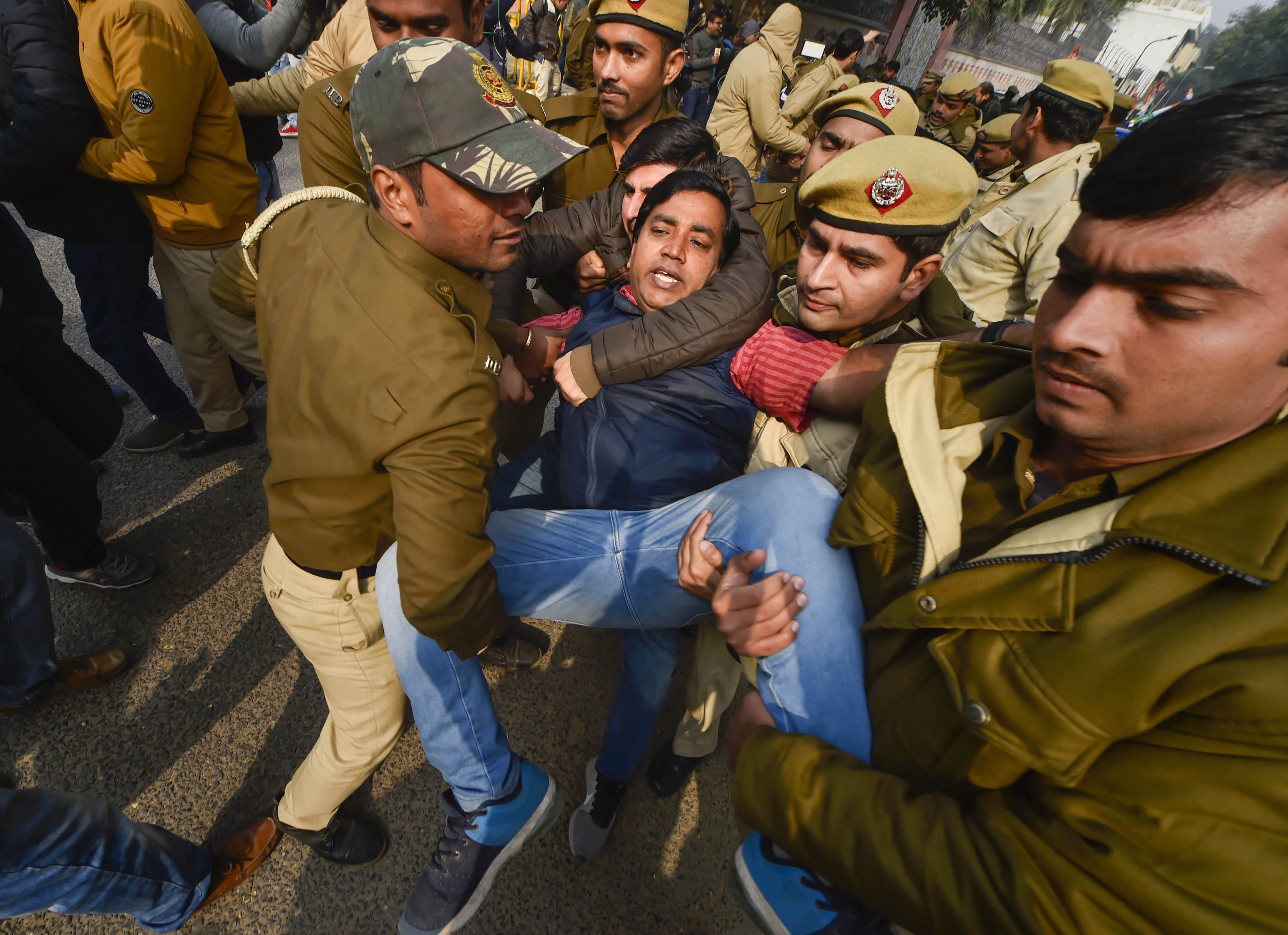
Promulgation of NSA in Delhi bodes ill for civil liberties, betrays streak of Sultan
Imposition of the draconian National Security Act (NSA) in Delhi shows the project of turning India into a police state is complete. Or, perhaps we can say now all of India is Kashmir, accept that the jackboots are not on the ground but watching us from a distance.

Imposition of the draconian National Security Act (NSA) in Delhi shows the project of turning India into a police state is complete. Or, perhaps we can say now all of India is Kashmir, accept that the jackboots are not on the ground but watching us from a distance.
The NSA allows preventive detention of a person for months if the police consider him a threat to national security without any explanation. Imagine the horror of the decision to turn Delhi into a place where civil liberties can be taken away in a flash. No questions asked, no remedy available. The state doesn’t like you, sir, ergo, you go to jail. Legal counsel, what’s that, again?
The same NSA has, incidentally, been used to detain several persons in Kashmir since the government withdrew special status guaranteed to the erstwhile state under the now abrogated Article-370. The order was issued by Delhi Lieutenant-Governor on January 10. The Delhi police claim it is a routine decision that’s circulated every three months.
The spin imparted to the decision should not delude anyone. For the past few months, Delhi has been the epicentre of protests led by students, civil right activists and ordinary people against amendments to the citizenship laws. This is a clever ploy to swoop down on its leaders and put them away in a place where their voices can’t be heard.
Also, in a few weeks, elections to the Delhi assembly are to take place. Armed with the new powers, the government can now strike down on its rivals with ease and impunity. Also, it can keep a close watch on those supporting the opposition and treat them the way it wants.
But, the trajectory of the decisions taken by the government in states under the BJP rule makes it apparent that the state wants to impose heavy restrictions on democratic processes and civil liberties. It wants to stifle dissent by making its cost so severe that ordinary citizens would dread speaking up. In short, the government wants everyone to just shut up, or else face severe punishment. In a way, this the BJP’s JNU model in action, minus the use of non-state actors. Now, instead of self-radicalised goons and thugs from the Hindutva brigade, dissenters would be silenced through the use of law.
The same shut-up-or-else threat has been used with devastating effect in both Delhi and Uttar Pradesh, two territories under the BJP’s baton. Over the past few months, people have been picked up arbitrarily, put in jail; they have been sent notices for paying up money on the charges of damaging public property, without the benefit of letting them counter the charges. But, that’s just the visible part of it. In other places, under the cover of the dark, police have acted in a partisan manner to beat down protestors, damage their property, and sometimes even fire at crowds, leading to several deaths.
What is the implication of all this?
To understand the suffocating milieu, we need to revisit our colonial past where similar restrictions were placed on citizens, and people living in their own land were told several liberties are not available to them. Violence was perpetrated at the slightest pretext, with the use of disproportionate force, and its perpetrators were let off mildly.
One, this implies that the government has created a clear division that it is the ruler and the people are its subject. The compact between a democratically-elected government and its electors is more or less over. So, after a few decades of democracy we are again under the thumb of a Sultanate that treats power as entitlement.
Two, it means the government will now go to any extent to suppress people, which in turn implies its desire to stay in power at any cost. When this happens, India becomes a min-replica of the Russian model of democracy, where just one person keeps coming back to power by using every tool available to them, both constitutional and extra-constitutional.
Three, it means the government is testing the will and courage of people who are willing to oppose it. It is pushing them back with the hope they would end their resistance. The strategy would succeed if people get scared of the implications of dissent. But, history of humankind has shown once people get used to something, they hate to give it up. Indians are used to a liberal, secular, democracy where independence is non-negotiable.
If the history of India tells us anything it is this: the people in power should be ready for a long battle whose result is a fait accompli.

